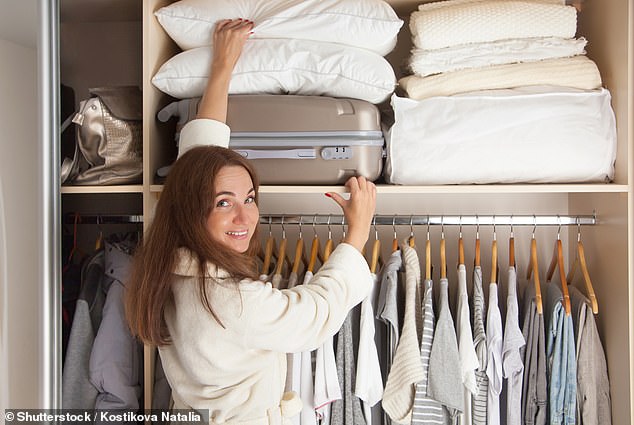[ad_1]
Scientists have found that a common item used by billions of people worldwide is hiding a dirty secret.
A new study discovered that suitcase wheels carry up to 40 times more bacteria than an average toilet seat, making then the most contaminated everyday items we touch while travelling.
The team tested ten suitcases, swabs were taken from the wheels and the base of soft-shell and hard-shell, at a London airport rail hub.
The study found out that each wheel swabbed carried hundreds of colonies of bacteria and fungi, which is far more than what you would find in toilets.
These germs were linked to food poisoning, infections, and even respiratory issues.
The lab tests showed suitcase wheels held 400 bacterial colonies per three square centimeters, that is smaller than a credit card and nearly 40 times filthier than the average toilet seat with approximately 10 bacterial colonies.
Researchers say that soft-shell suitcases are turned out to be worse than hard-shell suitcases, as their fabric traps moisture and dirt, leading to mold formation.
Even more unsettling, many travelers unknowingly place these germ-ridden wheels directly on hotel beds, tables, and closet shelves when they unpack.

A new study discovered that suitcase wheels carry up to 60 times more bacteria than an average toilet seat, making then the most contaminated everyday items we touch while travelling
Researchers viewed the wheels swab under a microscope, and it lit up with thick clusters of mold and bacteria, from residue of human or animal poop to black fuzzy spores and skin-shedding microbes.
According to federal data, approximately 2.9 million people travel through the airport daily, the risk of spreading these bacteria across homes and hotels nationwide is higher than ever.
Amy-May Pointer, a microbiologist who led the study, told Travel+Leisure: ‘Suitcases, especially their wheels and bottoms, are germ magnets that can out-germ even a toilet.’
Scientists call these CFU, colony-forming units, which basically mean how many colonies of bacteria are living on a surface.
The study, published in InsureandGo, also showed that the suitcase base had about 350 colony-forming units (CFU) per three square centimeters of bacteria.
The team also took a swab from the luggage trolley, touched by thousands of daily passengers, and found out that they are 40 times more bacteria than a toilet.
Among the microbes identified in the lab was Staphylococcus aureus (Staph), a common skin bacterium that can turn dangerous if it enters a cut or contaminates food.
They also found Serratia marcescens, a germ that lives in damp places like bathrooms and is known to cause urinary and wound infections, especially in hospitals.

The lab tests showed suitcase wheels held 400 bacterial colonies per three square centimeters, that is smaller than a credit card and nearly 40 times filthier than the average toilet seat
Then there was Bacillus cereus, a tough bug often found in soil and floors, linked to food poisoning.
The lab test also detected Aspergillus niger and Penicillium, the two types of black mold that usually grow outdoors or on floors. These fungi are known to trigger allergies and respiratory problems.
Perhaps most concerning was the presence of presumptive E coli, a red flag for fecal contamination. Its presence suggests the trolley wheels are likely picking up traces from restrooms, dirty sidewalks, or even bird droppings.
‘The key point is that microbes were very diverse, reflecting all the places the luggage had been,’ Pointer suggested.
‘It reinforces the recommendation to keep luggage away from clean surfaces like beds and to deep clean it occasionally.’
Even if these bacteria do not always cause illness on their own, experts say they create a ‘film of general filth’ that spreads easily, especially when luggage is placed on hotel beds or carpets at home.
Expert recommended not to put bags on the bed and always luggage rack or leave them on floor to avoid more contamination.
‘A wipe with a disinfectant wipe or soapy cloth on the wheels and base of your luggage can significantly cut down the bacterial load,’ Pointer said.
‘It’s a small step that prevents you from dragging bathroom-floor bacteria into your home (and onto your bed). Occasionally, you can do a periodic deep-clean of your suitcase.’
The study did not directly suggest that suitcases are deadly, but it does reveal that they are one of the overlooked source of contamination in everyday life.
‘This one is more about prevention. If possible, avoid rolling your suitcase through obviously filthy areas,’ said Pointer.
‘For example, don’t drag it into the toilet stall if you can help it. The less gunk your wheels pick up, the less you’ll have to worry about later,’ she said.
[ad_2]
This article was originally published by a www.dailymail.co.uk . Read the Original article here. .

